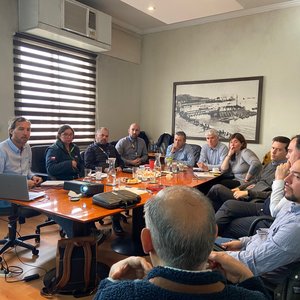Scientists at the University of Stirling have used models of current and future fisheries and aquaculture production, based on FAO data, to provide estimates for the future availability of raw material for marine ingredients.
The model shows an increasing availability of raw material from by-product derived from aquaculture as that sector continues to grow, but also confirms an under-utilization of by-product from both fisheries and aquaculture at the current time.
As the total volume of raw material, and fishmeal and fish oil production increases, by-product is predicted to provide an increasing proportion of the total. This work was commissioned by IFFO in order to quantify the potential volume of future global raw material supply.
Europe currently uses proportionately more by-product for fishmeal and fish oil production than other regions. Asia, and China in particular, shows the most potential for future marine ingredient supply from under-utilised resources in both fisheries and aquaculture. Fish oil is predicted to grow more slowly than fishmeal, as future contributions from aquaculture are likely to include increasing proportions of low-oil yield farmed freshwater species. Logistical and practical difficulties account for the current under-utilisation of by-product in marine ingredient production. Read the full report (PDF) on the IFFO website.
“Models such as this are useful in providing an overview of future scenarios for the industry, and are important in managing the security of supply of marine ingredients within global food supply chains,\" stated Dr Neil Auchterlonie, Technical Director of IFFO. \"The Stirling University team has provided some excellent predictions of future supply of these vital ingredients into aquatic and terrestrial protein production systems.”










